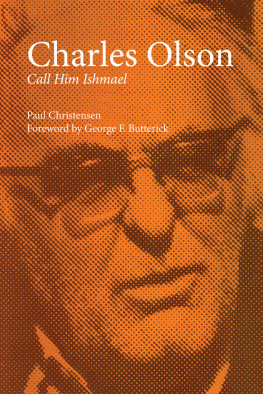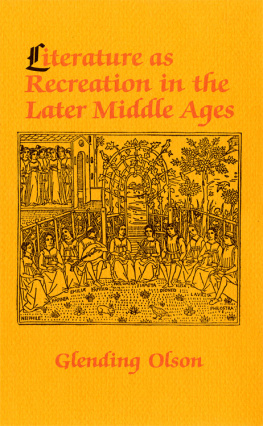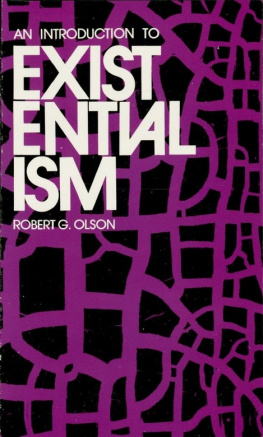Paul Christensen - Charles Olson: Call Him Ishmael
Here you can read online Paul Christensen - Charles Olson: Call Him Ishmael full text of the book (entire story) in english for free. Download pdf and epub, get meaning, cover and reviews about this ebook. year: 2012, publisher: University of Texas Press, genre: Detective and thriller. Description of the work, (preface) as well as reviews are available. Best literature library LitArk.com created for fans of good reading and offers a wide selection of genres:
Romance novel
Science fiction
Adventure
Detective
Science
History
Home and family
Prose
Art
Politics
Computer
Non-fiction
Religion
Business
Children
Humor
Choose a favorite category and find really read worthwhile books. Enjoy immersion in the world of imagination, feel the emotions of the characters or learn something new for yourself, make an fascinating discovery.
- Book:Charles Olson: Call Him Ishmael
- Author:
- Publisher:University of Texas Press
- Genre:
- Year:2012
- Rating:4 / 5
- Favourites:Add to favourites
- Your mark:
- 80
- 1
- 2
- 3
- 4
- 5
Charles Olson: Call Him Ishmael: summary, description and annotation
We offer to read an annotation, description, summary or preface (depends on what the author of the book "Charles Olson: Call Him Ishmael" wrote himself). If you haven't found the necessary information about the book — write in the comments, we will try to find it.
Charles Olson was an important force behind the raucous, explicit, jaunty style of much of twentieth-century poetry in America; this study makes a major contribution to our understanding of his life and work.
Charles Olson: Call Him Ishmael — read online for free the complete book (whole text) full work
Below is the text of the book, divided by pages. System saving the place of the last page read, allows you to conveniently read the book "Charles Olson: Call Him Ishmael" online for free, without having to search again every time where you left off. Put a bookmark, and you can go to the page where you finished reading at any time.
Font size:
Interval:
Bookmark:
Charles Olson
Call Him Ishmael
BY PAUL CHRISTENSEN
Foreword by George F. Butterick
University of Texas Press
Austin
To my parents
Library of Congress Cataloging in Publication Data
Christensen, Paul.
Charles Olson, call him Ishmael.
Bibliography: p.
Includes index.
1. Olson, Charles, 19101970Criticism and
interpretation. I. Title.
PS3529.L655Z615 811.54 788624
ISBN 0292710461
Copyright 1975, 1979 by Paul Christensen
All rights reserved
Printed in the United States of America
ISBN 978-0-292-76242-8 (library e-book)
ISBN 978-0-292-76243-5 (individual e-book)
DOI 10.7560/710467
Due to the lengthy copyright data, an extension of the copyright page is given on .
Foreword
The briefest survey will reveal that until now Charles Olson has not been given the serious critical attention his poetry and poetics demand. Many of the earlier critics, too close in time, were unable to clearly distinguish his contributions to American writing. Most reviewers comxpared Olson to Ezra Pound only to dismiss him as a Poundian imitator or disciple. James Dickey, for instance, rejected the poems in both The Distances and The Maximus Poems as predictable Pound-cum-William-Carlos-Williams constructions. Karl Shapiro wrote haughtily, Charles Olsen [sic] is a disciple of Pound and I like him for that. Pound in the long run is the best modern master, if one needs masters. And Robert Lowell remarked in an interview published in 1971, Olsons Maximus is Paterson and the Cantos, though woodier, whatever that means. Even George Oppen, ordinarily given to fine discriminations, wrote that to encounter Olsons work, in spite of the currency of the phrase, is simply not an encounter with a new poetry, because of the audible presence of Pound in the verse (this may have been one of the reasons Olson chides Oppen in The Maximus Poems), Only Charles Boers extended memoir gave us the man in all his original dynamic genius and extravagance, his uniqueness, his variability. It was hoped the publication of Charles Olson & Ezra Pound, so ably edited by Catherine Seelye, as one of the earliest posthumous volumes, would cause the entire issue to be raised and thoroughly faced, and to some extent that has begun to happen.
Paul Christensen does not face this issue at the greatest possible length or, thank goodness, exhaust himself upon it but saves his strength (real strength) for the larger issue: how does a poet propose to transform the world (if it needs transforming; celebrate it, if that is what is called for)? He discusses Olson in terms of a new awareness, an altered consciousness that Olsons own writings propose andalmost by the straining of syntax alonerequire. The title, of course, echoes that of Olsons study of Melville and America, but it also presents the poet himself as Ishmael, Melvilles Ishmael, a sole survivor. Survivor of what, it might be askedthe West? modernism? perhaps America itself? Certainly a survivor of the old dispensation or disposition of mind. Olson is both as archaic as Pleistocene man and, as Christensen writes, a first Westerner of the new consciousness.
This book is not just a mechanical reading through the poemseven with wit and common senseor the imposition of some ideological or systemic grid on the work to see what it will yield. It is rich in the authors own ideas, with a sense of literary and intellectual history, original scholarship (he has done at least one thing I could not doidentify the old German x-ray technician whose story is alluded to in The Distances), and a critical intelligence that is at once sympathetic and usefully precise. All this is present in a style most pleasant and effortless. It is a brisk, sure prosebut not all charm, or charm alone. There is method, orderliness in his approach. He gives us the man, the essential biographical details, then proceeds with the earliest writings, discussing them against the intellectual background of the time, and from there advances to separate subject categories, a long comprehensive stretch on The Maximus Poems, and concludes by placing Olson once more in history, among his contemporaries. He reasons, he weighs, he wrestles. He applauds the risks Olson took. He grapples with them both above and below the surface. He remains self-possessed in the face of undisguised eccentricities.
The writing, then, is characterized by a general orderliness of mind, without the relegating of live ideas to labeled cages and other substitutes for thought. Christensens judgments are his own, not begged or borrowed. He does not bluff the difficulties. He covers the ground, from the most immediate and obviousOlsons relationship with his predecessors Eliot, Pound, and Williams, the tradition of the long poembut also back to Hegel and the Romantics. He is not overly dependent on but faithful to the texts. He uses them in such a way that we are stirred to go back to them in their entirety, back to them as to a favorite hope or home.
Christensens book is a series of natural balances between proof and faith. And behind all the words is the deeply rooted conviction that Olsons work, wide and sprawling though it may be, originates in a coherent, clear center of concern. Christensen shows us the ways in which Olsons poetry can be judged on its own terms, by its own techniques, as well as according to more commonly traditional ones. The techniques in the verse as practiced by Olson include processual (in Whiteheadian terms), openness, discovery rather than recovery of form, reward by image, syncopation, incremental associations, paratactic forwarding. It is not unusual to observe that the experimental mode has conventions of its own, that the avant-garde becomes a tradition like any other, a tradition of the new. Consequently, it is possible to judge a bad projective poem from a good one without blindly dismissing all such poetry as antipoetic. Within the new consciousness, within the new conventions, as within the limits of the old, only the most energetic, the subtlest, the largest-hearted survive. It is no different than for the writer of the sonnet or the sestina. At its worst, what in 1950 Olson called open poetry leads to vapid looseness, sleepy rambles, pedantic tangle, solipsism, exclusiveness, and other forms of selfishness and decadence. There might even be, in an authors sudden terror of blank openness, a forced apocalypticism. At its best, however, a wholly new and dominant tradition emerges, although one already begun by Whitman, vers libre, and imagism. Its characteristics are triumph, ecstasy, heart change, renewed mind, recovered purpose, keenness of sensation, sensual awakening, and comprehensionnot the least bit different from the old verse of Arnold or Tennyson. What is different, perhaps, are the risks it takes, the pitching of success or failure on the moment and against the limits of language, the total organicism.
The reoriented consciousness is not hot-eyed mysticism. It is not to lead to automatic writing or astral projection or other attempts at sustained ecstasy. Olson was not so inexperienced. The new consciousness is a polis of the self. It is a coherence which, for the first time since the ice [always that scope in Olson], gave man the chance to join knowledge to culture and, with this weapon, shape dignities of economics and value sufficient to make daily life itself a dignity and a sufficiency. This is what Olson sought for the poem, to make daily life itself a dignity and a sufficiency.
Christensen is willing to judge Olsons poems on their own merits rather than solely against the terms of formalist verse. Otherwise, how can he discuss the change of consciousness the writing proposes, how can he dare? He begins to build the principles for understanding and judging this new poetry that has emerged since the Second World War, this postmodernism. He contributes directly to what he calls a new grammar for such poetry. And within the new tradition, thanks to his work, it will be seen there are gradations and discriminations enough for any dedicated reader, or seeds enough for the
Next pageFont size:
Interval:
Bookmark:
Similar books «Charles Olson: Call Him Ishmael»
Look at similar books to Charles Olson: Call Him Ishmael. We have selected literature similar in name and meaning in the hope of providing readers with more options to find new, interesting, not yet read works.
Discussion, reviews of the book Charles Olson: Call Him Ishmael and just readers' own opinions. Leave your comments, write what you think about the work, its meaning or the main characters. Specify what exactly you liked and what you didn't like, and why you think so.











